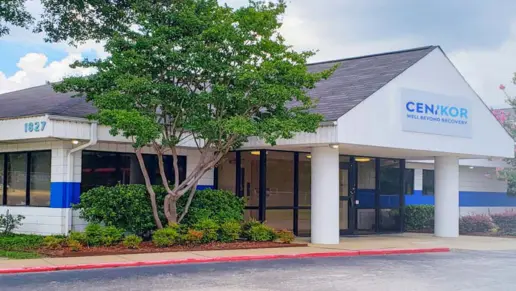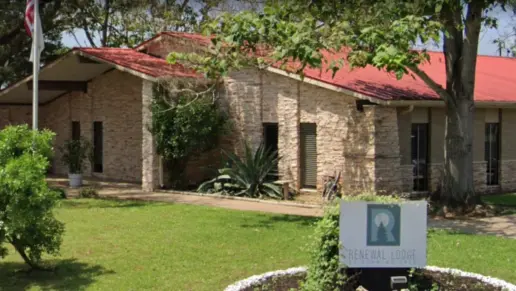About Life Management Resources
LegitScript-certified Life Management Resources is a virtual drug rehab that offers an intensive outpatient program to adult men and women around Plano, Texas. This rehab center also offers recovery support services and professional therapeutic treatment alongside its program.
The online intensive outpatient program offered is an effective treatment modality for those attempting to overcome drug and alcohol addiction. This approach is offered via a video conferencing platform that is specifically designed to work with healthcare providers to provide the best online treatment option possible.
Those enrolled should expect it to operate like a traditional intensive program, with individual or group counseling sessions. The treatment plans provided are also individualized to meet a patient’s needs, and patients should also expect family support counseling, substance abuse evaluations, and peer support.
They’re accredited by The Joint Commission and accepts most major insurance carriers, including United Healthcare, Magellan, TRICARE, Kaiser Permanente, Blue Cross Blue Shield, Aetna, and Cigna. To confirm coverage and establish out-of-network benefits, it’s crucial to speak with the rehab center and your insurer.
Accepted Insurance
Other Forms of Payment
Medicaid is a state based program that helps lower-income individuals and families pay for healthcare. Medicaid covers addiction treatment so those enrolled can use their coverage to pay for rehab. When a program accepts Medicaid the client often pays very little or nothing out of their own pocket.
Private insurance refers to any kind of healthcare coverage that isn't from the state or federal government. This includes individual and family plans offered by an employer or purchased from the Insurance Marketplace. Every plan will have different requirements and out of pocket costs so be sure to get the full details before you start treatment.
Self-pay involves paying for treatment out of your own pocket. You can use savings or credit, get a personal loan, or receive help from family and friends to fund your treatment. If you don't have insurance or your insurance plan doesn't cover a specific program, self-pay can help ensure you still get the care you need.
Financial aid can take many forms. Centers may have grants or scholarships available to clients who meet eligibility requirements. Programs that receive SAMHSA grants may have financial aid available for those who need treatment as well. Grants and scholarships can help you pai for treatment without having to repay.
Sliding scale payments are based on a client's income and family size. The goal is to make treatment affordable to everyone. By taking these factors into account, addiction recovery care providers help ensure that your treatment does not become a financial burden to you or your family, eliminating one barrier to care.
Addiction Treatments
Levels of Care
Treatments
The goal of treatment for alcoholism is abstinence. Those with poor social support, poor motivation, or psychiatric disorders tend to relapse within a few years of treatment. For these people, success is measured by longer periods of abstinence, reduced use of alcohol, better health, and improved social functioning. Recovery and Maintenance are usually based on 12 step programs and AA meetings.
During rehab in Texas, you'll deal with underlying issues that contribute to addiction. By addressing these challenges and learning healthy ways to cope with them, you'll develop strategies that help you live a drug-free lifestyle.
Many of those suffering from addiction also suffer from mental or emotional illnesses like schizophrenia, bipolar disorder, depression, or anxiety disorders. Rehab and other substance abuse facilities treating those with a dual diagnosis or co-occurring disorder administer psychiatric treatment to address the person's mental health issue in addition to drug and alcohol rehabilitation.
Opioid rehabs specialize in supporting those recovering from opioid addiction. They treat those suffering from addiction to illegal opioids like heroin, as well as prescription drugs like oxycodone. These centers typically combine both physical as well as mental and emotional support to help stop addiction. Physical support often includes medical detox and subsequent medical support (including medication), and mental support includes in-depth therapy to address the underlying causes of addiction.
Substance rehabs focus on helping individuals recover from substance abuse, including alcohol and drug addiction (both illegal and prescription drugs). They often include the opportunity to engage in both individual as well as group therapy.
Programs


Clinical Services
Cognitive therapy is an active, structured form of psychotherapy that is designed to rapidly and effectively reduce and eliminate psychological symptoms. Cognitive is simply a fancy word that means thoughts. Cognitive behavior therapy, sometimes known as CBT is a form of psychological treatment that focuses on the thoughts and behaviors that accompany psychological distress.
or Families, the opportunity to participate in family group occurs each Thursday evening or Friday morning. In this group session, each family member is given the opportunity to discuss their loved one and the progress they are making. It also provides an opportunity for family members to seek out ways to deal with those in early recovery, since many times this can be a frustrating experience. Suggestions and exercises are presented to help the families begin to improve the way they functions and to build toward healthier families and relationships.
Group therapy is any therapeutic work that happens in a group (not one-on-one). There are a number of different group therapy modalities, including support groups, experiential therapy, psycho-education, and more. Group therapy involves treatment as well as processing interaction between group members.
Individual therapy takes place on a regular basis. This experience provides the patient with a trusting, meaningful relationship with their personal counselor and an opportunity to process issues not covered in the group setting. In addition, patients will complete Steps 1,2 and 3 with their counselor.
Motivational interviewing is a form of counseling that recognizes and accepts the fact that clients who need to make changes in their lives approach counseling at different levels of readiness to change their behavior. If the counseling is mandated, they may never have thought of changing the behavior in question. Some may have thought about it but not taken steps to change it. Others, especially those voluntarily seeking counseling, may be actively trying to change their behavior and may have been doing so unsuccessfully for years.
Amenities
-
Private Setting
Accreditations

The Joint Commission, formerly known as JCAHO, is a nonprofit organization that accredits rehab organizations and programs. Founded in 1951, the Joint Commision's mission is to improve the quality of patient care and demonstrating the quality of patient care.
Joint Commission Accreditation: Yes
Contact Information
1575 Redbud Boulevard
Suite 201
Mckinney, TX 75069





